Sustainable processing from end to end
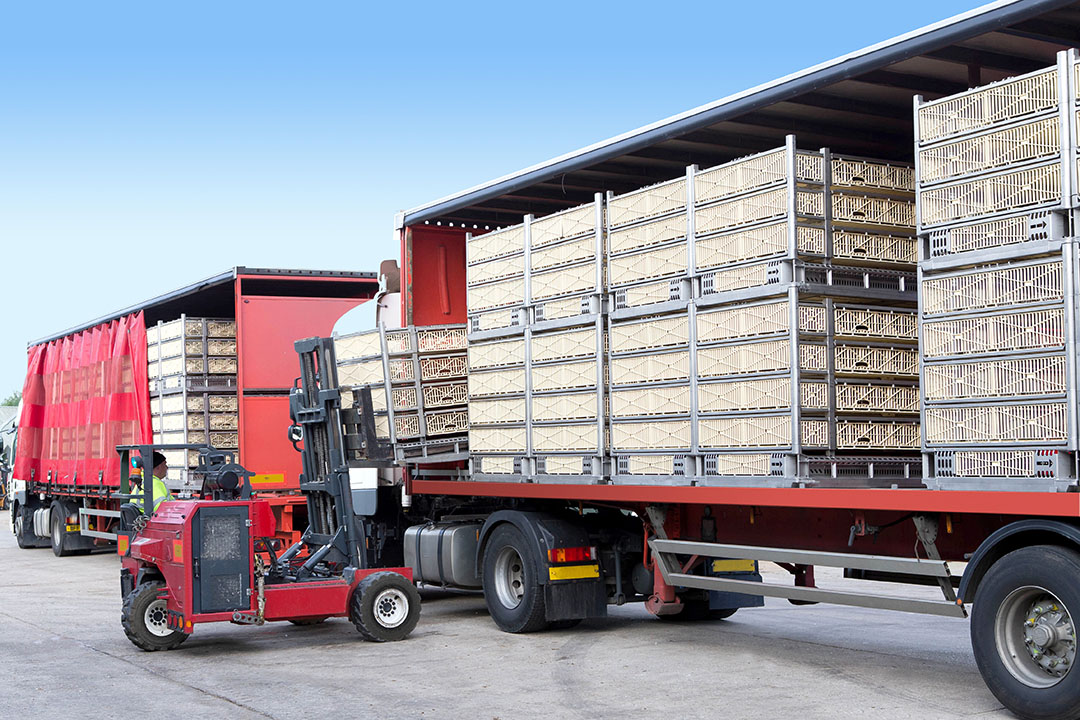
Sustainability and animal welfare are today’s hot topics. As a supplier of processing equipment and systems to the poultry industry, Marel takes both fully into account when developing new processing systems and equipment.
Marel can supply all poultry processing plant equipment starting in the growing shed when birds are ready for catching, loading and transport and ending with the treatment of effluent and by-products. 2 technologies at opposite ends of the process illustrate Marel’s commitment to sustainability, the Atlas live bird handling system and effluent treatment options from Marel Water Treatment Systems. Besides sustainability, improved animal welfare during catching and transport to the processing plant was a key factor in the development of Atlas (Advanced Technology Live bird Arrival System).
A comfortable journey
The SmartStack transport module, the heart of Atlas, is both sustainable and maximises animal well-being. It consists of a variable number of self-nesting trays equipped with tried and tested Air-Flo floors. It has no frame and its pallet doubles as an additional tier for transporting birds.
The advantages of the transport module are many. Its Air-Flo floors provide a loading opening equivalent to 70% of the floor area of each tray. This offers the largest loading space available, allowing birds to be placed downwards on their feet and reduces the risk of damage to wings and legs during loading. Its trays also offer plenty of headroom, allowing birds to sit comfortably. Profiled Air-Flo floors provide adequate ventilation, have channels to collect manure and allow birds to grip during the twists and turns of the journey to the processing plant.
Processing plant benefits
The transport module has welfare benefits too. On arrival at the processing plant, a vet can check bird health and condition in the lairage. By flipping over the side panel nearest to the bird, the vet can quickly remove any bird found to be in distress. When birds are ready to be processed, modules are gently de-stacked automatically. Open trays then move smoothly to the next stage in the process, which could be a Marel SmoothFlow controlled atmosphere stunning system. Possible DOAs can be easily removed from the open-top trays immediately after de-stacking, preventing them to be processed.

Emphasis on sustainability
By accommodating birds in its pallet, the live bird handling system allows the transport of up to 38% more birds per trip, making for a considerably smaller carbon footprint. This feature also lowers transport costs making the transport module sustainable too.
By providing a better environment for catching and transport, the transport module can significantly reduce the number of DOAs and downgrades. Unlike most manufacturing operations, a poultry processing plant disassembles. A sustainable disassembly process pays careful attention to maintaining the quality of each individual component, finding the most profitable use for it. Delivering as many live birds as possible in the best possible condition is the best possible start to a process, which is truly sustainable.
The design of the transport module also makes it particularly easy to clean, important in preventing the transmission of disease from one flock to another. The Atlas module washing system uses clever nozzle design and positioning to ensure the use of no more water than necessary during this essential process.
Sustainable water management
In today’s warming world, sustainable water management is becoming ever more important. Of all meats, the production of poultry meat uses the least water. Poultry processing plants use water to transport waste, to chill and to wash and lubricate machines. Over the years, water consumption per bird processed has gone down. Many plants already use vacuum to transport evisceration and cutting room waste. Air chilling has replaced water chilling in many markets. This trend is continuing. Most importantly, water used during the process does not have to be lost. Properly treated, it can be re-used in a surprising number of ways.

Avoiding the blind spots
Today’s high volume, multi-shift operations leave little time for thorough cleaning. When designing its machines, Marel therefore takes particular care to avoid the blind spots, which slow wash-down. The frames of all evisceration line machines have oblique surfaces, which allow water to run off. The SmartStack does not have a frame at all.
Recent Marel process developments have focused on using as little water as possible. Examples are the Atlas SmartStack washing system, the AeroScalder moisturised hot air scalding system and the DownFlow + air-chilling technique. AeroScalder uses up to 75% less water and 50% less energy than conventional scalding systems. Downflow+ allows its users to set water volumes precisely, adding just enough water to prevent products from drying out and giving the product presentation required by the marketplace.
Larger environmental plan
Every poultry processing plant generates waste-water, containing elements such as proteins, fats, carbohydrates, blood, feathers, meat particles, residual acids, metals, and chemicals. Marel Water Treatment offers a variety of technologies for removing some or all of these contaminants, making this water fit for discharge to sewer, surface water or rivers. Being able to reuse this water in the process itself is obviously the most sustainable solution. The Marel BioBrane system takes water already biologically treated by another Marel Water Treatment method and purifies it further, making it fit for cleaning, re-use in the process itself and even for drinking. Re-use as irrigation water can be an important part of a larger environmental plan, which also reduces CO2 emissions. In regions where water is scarce and every litre counts, treated water can drive centre pivot systems, which then irrigate surrounding land where grass or trees grow.
Everything counts
Consumers in many countries across the globe are showing increasing interest in how their food is produced. Sustainability, care of the environment and the well-being of the animals whose meat we eat are values, which are becoming daily more important. It is therefore only right that Marel should concentrate on these factors, when developing its solutions and advising the poultry processing industry.
Author:
Roy Driessen, Marel Poultry
Join 26,000+ subscribers
Subscribe to our newsletter to stay updated about all the need-to-know content in the feed sector, three times a week. Beheer
Beheer

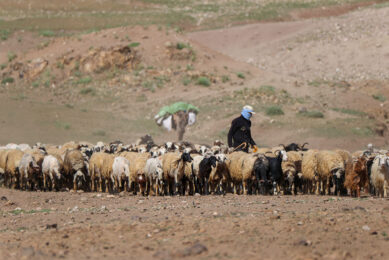
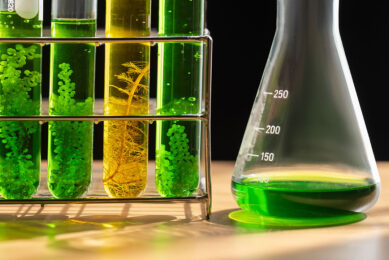
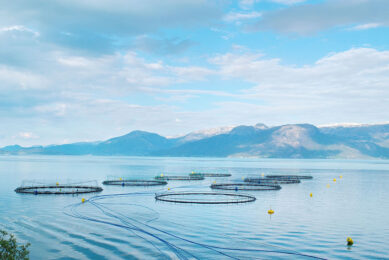
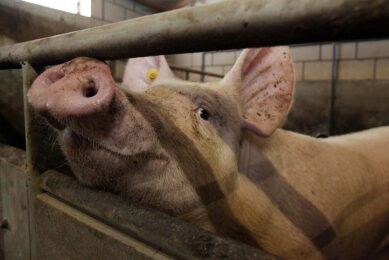
 WP Admin
WP Admin  Bewerk bericht
Bewerk bericht